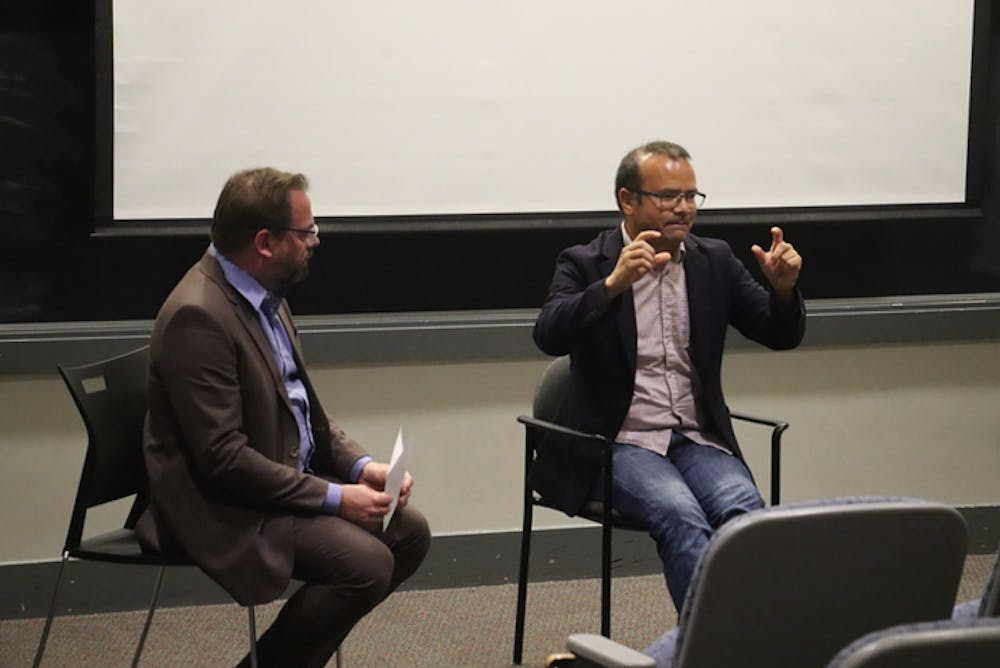On Nov. 5, Uyghur linguist and activist Abduweli Ayup (right) speaks about his efforts to preserve the Uyghur language (Photo courtesy of the Center for East Asian Studies).
On Nov. 5, Penn's Center for East Asian Studies hosted a screening of "Behind the Mask,” a film that documents Uyghur linguist and activist Abduweli Ayup's experience in an Uyghur internment camp in Xinjiang, China.
After the film screening, members of the audience engaged in a question and answer session with Ayup, where he discussed his efforts to preserve the Uyghur language. The Center hosted the event as part of an endeavor to promote awareness about geographic regions underrepresented in academic and popular media discourse.
“Abduweli Ayup maintains a collection of stories and testimonies about [Uyghurs in Xinjiang], and due to his background as a formerly incarcerated person, he is one of the few people who can speak about the situation in English with experience and detail,” Dettmann wrote.
College Senior Clarke Dickens attended the event with his peers from the "Advanced Turkish Media and Culture" course. In an interview with the DP, he highlighted how the conversation gave him further insight into the psychological toll experienced by Uyghur survivors.
“This event showed me what post [internment] camp life is like for those who survived,” Dickens said. “[Ayup] talked a lot about how his young daughters were impacted by [his arrest], how even when they moved to another country, they are still under distress because of their past experiences and their fear of being surveilled.”
At the end of the event, Ayup emphasized the need for continued dialogue through organizing similar events on university campuses. In his concluding remarks, Ayup called on the academic community to raise awareness about cultural oppression and human rights abuses.
“I prefer to come to universities and talk to students because they are the future builders of society,” Ayup said. “I hope students keep promoting human rights, so we can live with our dignity and our language — [and] so we can keep telling our story.”

